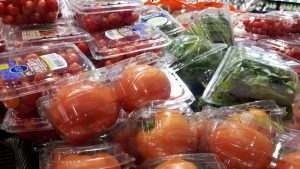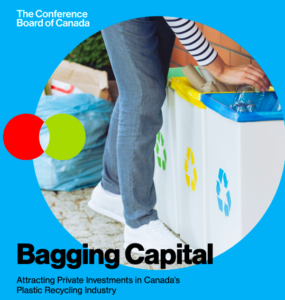Plastics recycler frustrated by government disinterest
Owners of an innovative plastics recycling plant say they are frustrated and disappointed by the refusal of the federal and Ontario governments to support their start-up company.
Grant Lawson, president of the family-owned BBL Energy, said the lack of senior government support makes him regret his company’s decision to locate its business in Ontario.
“If you look at it from our perspective, you want to be set up in a place that wants you,” said Lawson, adding that U.S. state governments from Arizona to upstate New York have been courting BBL to expand there.
But local MPP Steve Clark said Friday the provincial government would not hand out money to such a company without first vetting the proposed technology.
“Before you provide financial support for any business, you have to do your due diligence,” said Clark.
When Lawson and his sons Brett and Brad purchased the former machine shop in Johnstown last December as the site of their business, they figured that government support would be a no-brainer.
They planned the first North American site of a recycling operation that uses a unique technology to turn plastics into light diesel oil and natural gas.
The company will take such “dirty” plastic waste as water bottles, food containers like margarine tubs, plastic bags, hospital waste, straws and industrial drums. This plastic is now plugging up landfills because it can’t be recycled. The company’s same machines also can transform tires and used oil into energy.
The Lawsons say their plant would take plastics that are going into landfills, not the stuff that is being recycled now, so they figured they would get immediate interest from governments, particularly when China’s refusal to accept North American plastic waste and containers of garbage being shipped back from the Philippines are front-page news.
Instead, they got the cold shoulder from both the Canadian and Ontario governments, despite repeated approaches to government officials in departments of environment, science and technology and industry, they say.
Their application for a $5-million federal economic development grant was rejected because they are a new start-up, they have been incorporated for fewer than two years, they don’t have enough employees or enough revenue.
Brett Lawson says the government claims are frustrating. He said BBL has commitments for more plastic than it needs and purchasers are lined up for the diesel and oil created by the plant. When up and running, the plant will employ about 25 people at first, rising to 40 at full capacity, he said. That doesn’t count the dozens of local contractors already employed converting the old Prescott Machine and Wielding Company for BBL’s use.
BBL is also employing a proven technology that is used in more than 30 plants in India, Africa and Wales, the Lawsons said.
The family suspects that the federal Liberal government doesn’t want to spend money in a rock-ribbed Tory riding during the run-up to the October election, although they admit they have no proof. And that doesn’t explain why the “open-for-business” Ontario government has also given them the brush-off, they say.
The Lawsons stress that their frustration is with the senior levels of government, not local officials. The support of Pat Sayeau, mayor of Edwardsburgh Cardinal, has been “fantastic,” said Grant Lawson, adding that the economic development department of Leeds and Grenville has been great in its support and in helping hunt for government dollars.
Support of the people around Johnstown also has been overwhelming, the family said.
Grant Lawson said BBL is committed to the local area, and it will go ahead with the Johnstown plant, regardless of the lack of senior government interest.
Lawson, founder of Trillium Health Care Products, said he is familiar with Brockville and Eastern Ontario, leading to the decision to locate in Leeds and Grenville.
The senior governments’ disinterest, however, has forced the company to scale back its plans, he said.
BBL originally wanted to start with two pyrolysis machines, later adding a third. But the lack of government help has meant BBL has scaled back to one machine to start.
Still, the more-modest start has meant a substantial investment for his family. They have sunk about $3 million in the purchase of the building and its renovations, and setting up the first machine will cost millions more, they say. The total initial investment could be $10 million.
The family estimated that a two-machine operation would cost $13 million, rising to $25 million for a three-unit plant.



